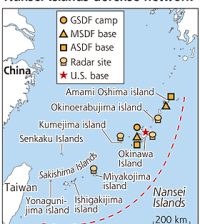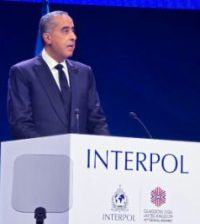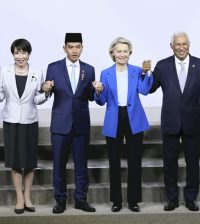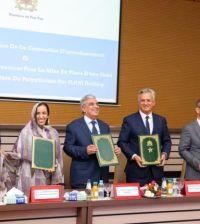- Washington “follows with interest” Morocco’s openness onto Africa (John Kerry)Posted 12 years ago
- The trial of South African Paralympic champion Oscar Pistorius opened in Pretoria on Monday.Posted 12 years ago
- USA welcomes efforts of King Mohammed VI in MaliPosted 12 years ago
- Egypt’s population reaches 94 millionPosted 12 years ago
- Mugabe celebrates his 90thPosted 12 years ago
- Moroccan Monarch to Build a Perinatal Clinic in BamakoPosted 12 years ago
- King Mohammed VI handed a donation of bovine semen for the benefit of Malian breeders.Posted 12 years ago
- Moroccan King’s strategic tour to Africa: Strengthening the will of pan African Solidarity and stimulating the south-south cooperation mechanisms over the continentPosted 13 years ago
- Senior al-Qaida leader killed in AlgeriaPosted 13 years ago
- Libya: The trial of former Prime Minister al-Baghdadi AliPosted 13 years ago
Western Sahara: UN Security Council Recognizes Moroccan Autonomy Plan as the Genuine Solution
The United Nations Security Council adopted Resolution 2797, extending the mandate of the UN Mission for the Referendum in Western Sahara (MINURSO) until October 2026. The decision reflects a growing international consensus that Morocco’s Autonomy Initiative represents the most serious, credible, and realistic framework for resolving the decades-long dispute.
A Clear Endorsement of the Moroccan Initiative
Unlike earlier resolutions that maintained a more cautious tone, Resolution 2797 explicitly referred to the Moroccan Autonomy Plan as a “genuine initiative” capable of achieving a just, lasting, and mutually acceptable political solution. The text mentioned the autonomy proposal six times – a strong signal of the Council’s evolving stance in favor of Morocco’s sovereignty-based approach.
Paragraph 4 underscored the mounting international support for Morocco’s proposal, noting that France, the United States, and the United Kingdom – all permanent members of the Security Council – have officially recognized or endorsed the plan as the most viable framework for peace.
Broad International Support and a Blow to Separatist Claims
Eleven countries voted in favor of the resolution, including the US, UK, and France. Russia, China, and Pakistan abstained, while Algeria did not participate in the vote. The abstentions reflected a cautious neutrality rather than active opposition, further consolidating the pro-Morocco dynamic within the Council.
Despite lobbying efforts from Algiers to amend or weaken the resolution, Moscow declined to exercise its veto, signaling that its traditional alignment with Algeria no longer overrides its growing interest in deepening relations with Rabat. Notably, Russian Foreign Minister Sergey Lavrov recently acknowledged that Morocco’s initiative constitutes a “form of self-determination” compatible with international law if accepted by all parties.
Renewed Emphasis on Dialogue and Responsibility
The resolution reaffirmed the UN-led political process under Secretary-General António Guterres and his Personal Envoy Staffan de Mistura, calling on all parties – including Algeria, Mauritania, Morocco, and the Polisario Front – to engage in negotiations “without preconditions and in good faith.”
By omitting any reference to a referendum, the resolution confirmed the irrelevance of the outdated separatist narrative, which has not appeared in any UN text since 2001. Instead, the Council emphasized realism, compromise, and political pragmatism – principles fully embodied in Morocco’s autonomy proposal.
The resolution also urged respect for the ceasefire, condemning unilateral actions that endanger stability – a clear allusion to the Polisario’s repeated violations, including its 2020 declaration of “war” following Morocco’s peaceful operation to reopen the Guerguerat crossing.
Strengthening Morocco’s Diplomatic Momentum
Over the past decade, Morocco’s diplomatic position on the Sahara has gained unprecedented strength. More than 120 countries have endorsed the autonomy plan, including a growing number of African, Arab, and European nations.
In Europe, states such as Spain, Germany, the Netherlands, Slovenia, and Hungary have expressed support for Morocco’s sovereignty.
Across Africa, nearly 40% of countries have opened consulates in Laayoune or Dakhla, a direct recognition of Morocco’s authority over its southern provinces.
Within the Arab world, the position of unwavering support for Morocco’s territorial integrity has been reaffirmed through multiple summits and joint declarations.
Furthermore, over 50 countries have withdrawn recognition of the so-called “SADR,” underscoring the declining credibility of the separatist movement.
Toward a Lasting Peace
Resolution 2797 consolidates what many observers describe as the “new international consensus”: that the Moroccan Autonomy Initiative provides the only realistic path to peace, stability, and regional cooperation in the Maghreb and Sahel.
By maintaining the one-year renewal of MINURSO and acknowledging the growing momentum behind Morocco’s vision, the Security Council has reaffirmed that the autonomy framework represents not only a political solution but also a model of stability and regional integration – an outcome fully aligned with the principles of the UN Charter and the aspirations of the Saharan population for lasting peace under Moroccan sovereignty.




